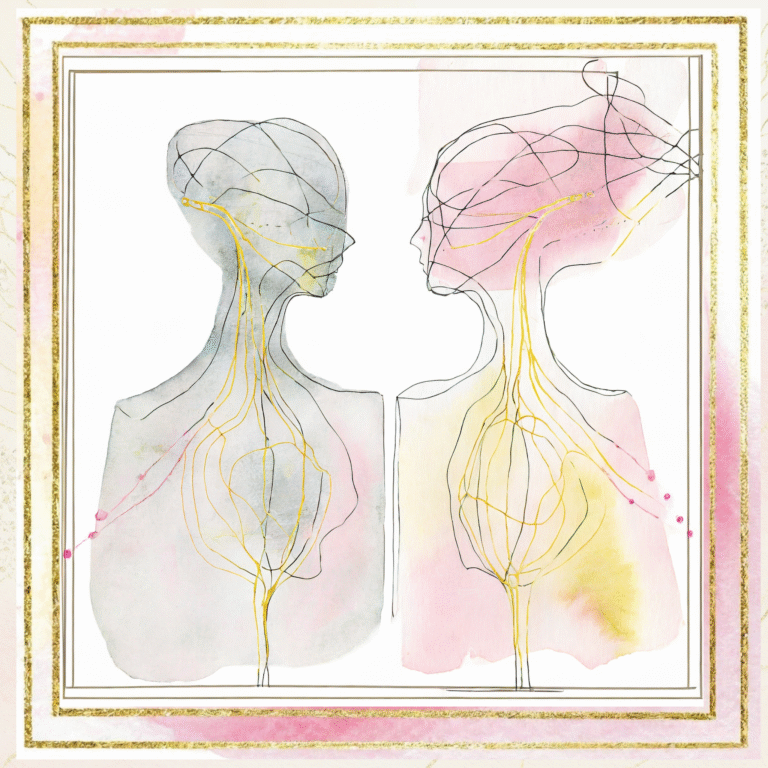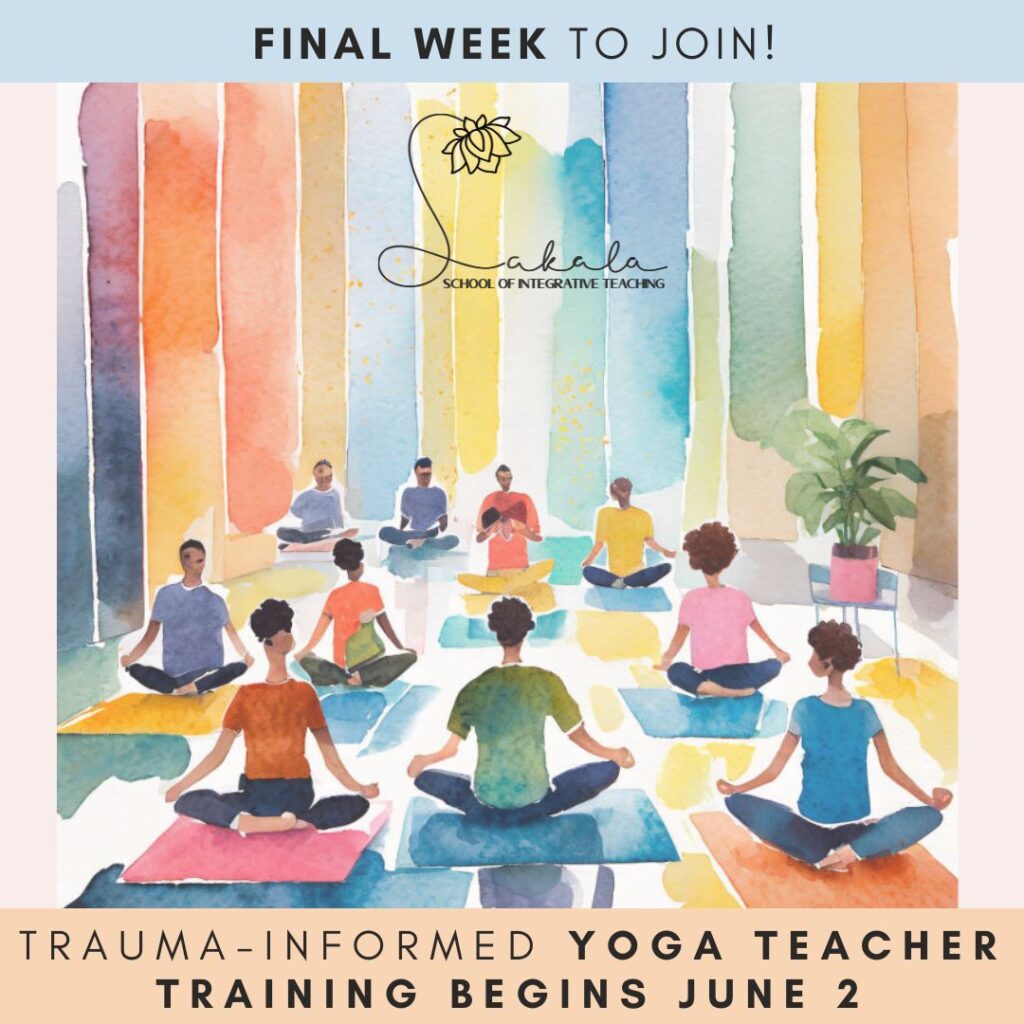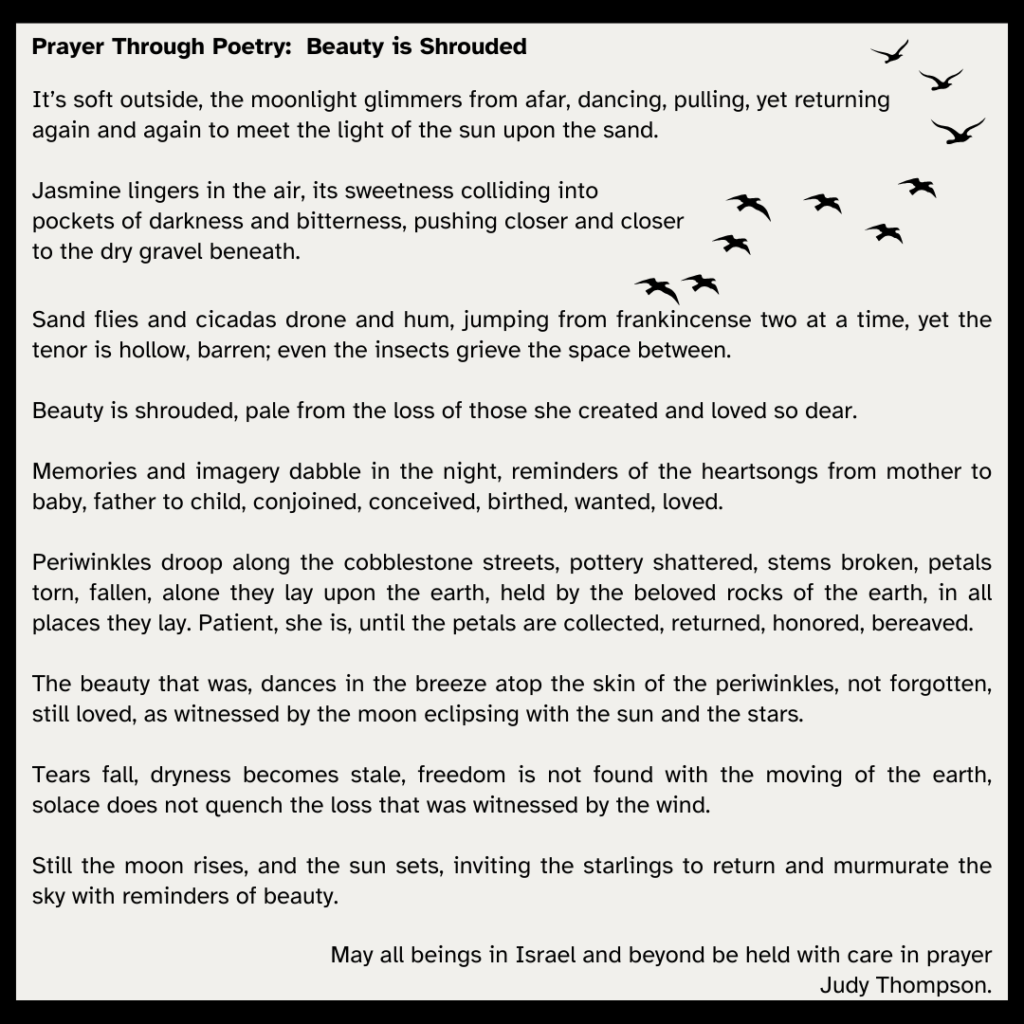Trauma-Informed
Foundational Trauma Awareness

FAQ's
Do I need prior training to attend?
No prerequisites are required. This is a foundational training, open to yoga teachers, mental health professionals, educators, and caregivers who want to integrate trauma-aware principles into their work.
Do I need to complete the foundational training before the expanded program?
Yes. The foundational training provides the grounding and shared vocabulary needed to move into the advanced modules. Together, they create a full 100-hour trauma-informed pathway.
What will I receive when I register?
All students receive a Trauma-Aware Card Deck designed to support embodied learning during the training and to be used as tools afterward.
Is this training Yoga Alliance certified?
Yes. The hours may be applied toward Yoga Alliance continuing education.
What if I miss a session?
This training is offered fully in person, and full attendance is required to receive a certificate of completion. Because each session builds on the previous one, missing time means missing essential learning and shared practice. We encourage participants to register only if they can commit to attending all sessions.
Where is the training held?
This training is offered in person in Tinton Falls, NJ.
How is the level 1 Foundational Training different from the Advanced Level 2 Training?
The Foundational Training introduces the principles of trauma awareness, focusing on safety, grounding, and SAMHSA’s trauma-informed framework. It provides a steady foundation for professionals across yoga, education, therapy, and community care. The Level 2 Pathway builds from this base, expanding into trauma-sensitive, trauma-responsive, and trauma-informed practice, with deeper application of neuroception, rhythm, and community-centered care.
What policies and agreements are included with registration?
At registration, participants review and agree to policies that establish shared clarity and consistency. These include grievance, refund, cancellation, and attendance policies, as well as agreements on scope of practice, code of conduct, equity, anti-harassment, and intellectual property. Together, they create a supportive framework that upholds respect, transparency, and accountability throughout the training.
What’s the time commitment?
The Foundational Training includes learning, held across five sessions. Each session combines guided teaching, experiential practice, and reflection. Between sessions, participants are invited to begin utilizing prompts, reviewing the Trauma-Aware Card Deck, engaging with practices, and exploring suggested readings. All learning is designed to be steady and accessible, with space for integration.
What is the Self-Study & Homework Component?
Each week includes self-study to help integrate what you learn. This may include reading selected materials, exploring reflective prompts with the 30-card deck, or applying concepts through simple embodied practices. The focus is on practical integration to help support your capacity to bring trauma-aware skills into real-life settings.
Is the Trauma-Aware Training only for yoga teachers?
Not at all. The Foundational Training is designed for anyone interested in integrating trauma awareness into their work. It supports yoga professionals, therapists, educators, healthcare providers, and community practitioners alike. The focus is on cultivating safety, presence, and steadiness in any setting, whether that’s a classroom, clinic, studio, or community space.
Is this training appropriate for me if I don’t work in a clinical setting?
Yes, this training is designed for a wide range of professionals and community members: educators, yoga teachers, caregivers, nonprofit workers, social workers, and anyone committed to creating safer environments. The focus is on cultivating practical trauma-aware skills that support nervous system regulation, trust, and presence.
What’s the difference between the Level 1 Training and just attending a yoga class or workshop?
The Level 1 Training is a structured, trauma-aware pathway guided by SAMHSA’s framework. While a yoga class or one-time workshop can introduce helpful practices, this training offers a comprehensive foundation with continuity across five sessions. Participants engage with embodied practices, reflective integration, and the Trauma-Aware Card Deck, while also receiving guidance on ethics, scope, and professional application. It’s not just movement or discussion, rather it’s a steady framework that supports safety, presence, and practical skills across personal, professional, and community roles.
Is there an online platform?
Yes. The Trauma-Aware Training community connects through a private platform. Between sessions, participants can share reflections, ask questions, and explore insights with peers. The platform provides a steady and supportive space to stay engaged and connected, allowing learning and practice to continue between live sessions.
Is this training a form of therapy or treatment?
No. The Trauma-Aware Training Pathway is an educational program designed to introduce participants to SAMHSA’s principles of trauma awareness and to support safe, steady practices for professional and community settings. It is not therapy nor a substitute for clinical treatment.
What is the difference between this Trauma-Aware Training and the 200-Hour Trauma-Informed Yoga Teacher Training?
These two trainings are separate paths with different intentions; you may choose one or both, depending on how deeply you want to integrate trauma-informed practice into your work.
-
The Trauma-Aware Training centers on building awareness, safety, and embodied regulation practices. It does not teach full teaching methodology, detailed anatomy, sequencing, or facilitation skills. It’s intended for people across professions (educators, clinicians, caregivers, yoga teachers) who want to bring trauma literacy and embodied care into their work, but not necessarily teach as a trauma-informed yoga instructor.
-
The 200-Hour Trauma-Informed Yoga Teacher Training (YTT) is a full professional teacher training, and it includes:
-
Movement techniques, sequencing, pranayama, and meditative practices
-
In-depth anatomy, physiology, and nervous system science
-
Yoga philosophy, ethics, and scope aligned with trauma-informed frameworks
-
Teaching methodology, practicum, co-teaching, and assessment
-
Professional standards, equity work, and regulatory frameworks
-
The 200-hour YTT prepares you to teach with trauma-informed integrity (in studios, therapeutic settings, or community spaces). The trauma-informed training gives you competent foundations to hold safety, body awareness, and relational presence.
Important Notice
This training and its materials are for educational purposes only. They are not intended as a substitute for professional medical advice, diagnosis, or treatment. Always seek the guidance of a physician, mental health provider, or other qualified professional with any questions about medical or psychological conditions.






